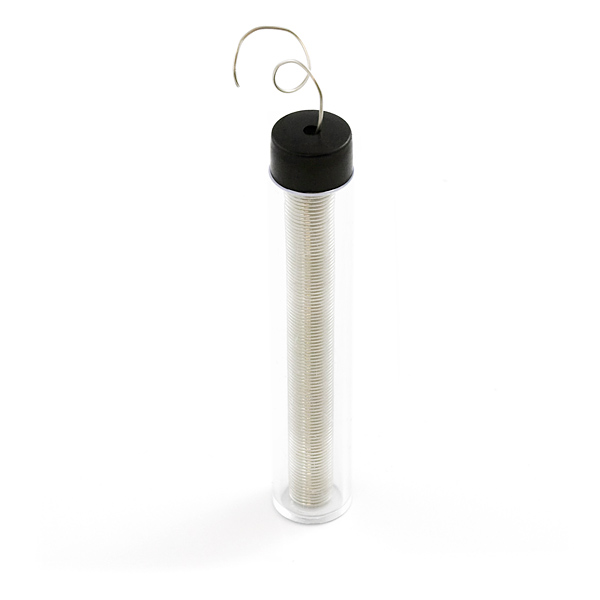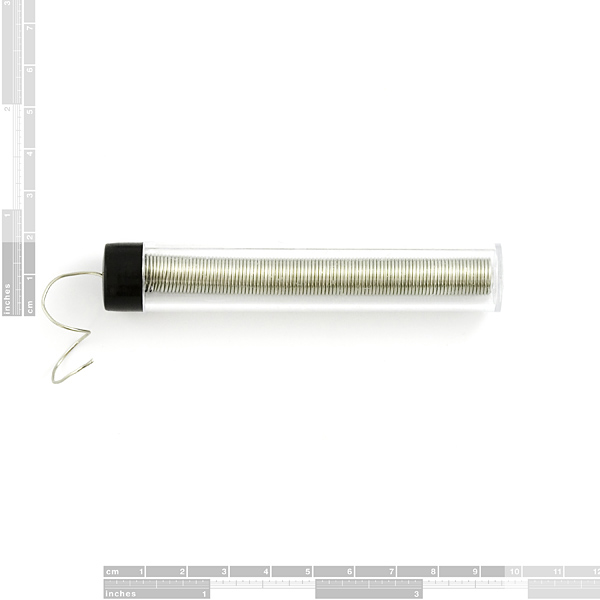Solder Leaded - 15-gram Tube Product Help and Resources
Core Skill: Soldering
This skill defines how difficult the soldering is on a particular product. It might be a couple simple solder joints, or require special reflow tools.
Skill Level: Noob - Some basic soldering is required, but it is limited to a just a few pins, basic through-hole soldering, and couple (if any) polarized components. A basic soldering iron is all you should need.
See all skill levels
Comments
Looking for answers to technical questions?
We welcome your comments and suggestions below. However, if you are looking for solutions to technical questions please see our Technical Assistance page.
Customer Reviews
No reviews yet.



Eutectic is recommended for beginners? This should be the primary solder used on every project you do for the rest of your life. 60/40 is sloppy and takes twice as long to heat, plus it has a temperature range where its soft and 'bendy' before it melts. Eutectic (63/37) has no soft point, it goes from solid to liquid instantly, which means you don't have to wait an extra 4 seconds for it to heat up and cool down. Now 4 seconds is nothing, but when you are soldering SMT with an exact iron temperature, it makes all the difference whether or not you've just destroyed a component. Don't think this is best for SMT only, using it with PTH will not only insure a quicker connection, but less time that the solder stays heated and moveable, so no more disturbed joints.
Agreed. 63/37 solder should be the only leaded blend used for non-manufacturing soldering, beginner or expert.
The 60/40 blend is only used in manufacturing because it is cheaper, and there are tighter heating controls so they don't need the eutectic properties. It should never be purchased by hobbiests who value their projects and their time.
Especially if you do SMD type soldering then you should get 62/36/2 (the 2 is silver), or some other type of solder that has silver in it.
Agree, I love the 62/36/2, but I can't find it anywhere in reasonable quantities! Unless I want to spend $150+ on a giant spool of it... any tips on where to find it? Honestly kind of disappointed Sparkfun doesn't carry it :(
Forgive me for saying this but Radio Shack. They sell it on small $5 (USD) rolls.
How do you clean the flux after you're done soldering?
You don't. It's no-clean flux, and non-corrosive. If you simply must clean it, try using alcohol. Make sure it dries before powering the circuit.
How is this leaded solder RoHS-compliant? Does it contain lead? Do I need a soldering iron that reaches nuclear fusion temperatures to create the lead?
It doesn't seem to say that it is RoHS...and yes, leaded solder has lead in it.
Ah, the logo was silently removed.
You can, if you want, see a feed of changes for this product, but it seems like a number of things aren't getting caught there. I'll have to look into making the feeds a little more reflective of reality.
For the record, we unmarked it as RoHS in mid-December of 2013. Probably a box was just checked in error somewhere back in the mists of time. Sorry 'bout that.